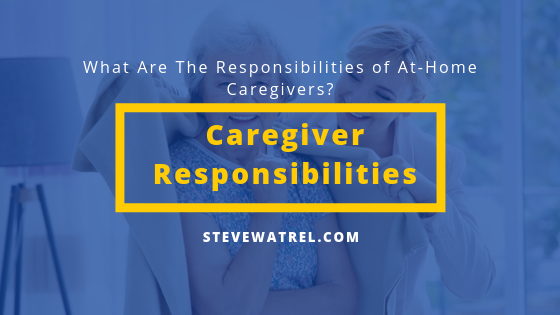As the number of older Americans increases, families are looking for alternatives to nursing homes for their senior relatives. Using at-home caregivers for seniors is a growing trend for those who don’t require 24-hour monitoring. However, this shift may confuse family members about the responsibilities of at-home caregivers. The duties of an at-home caregiver will vary from assignment to assignment, but no matter what, seniors must be protected from elder abuse and neglect. Here are some of the ways at-home caregivers are responsible for the safety and well-being of your older relatives.
Basic Elder Care Responsibilities
One of the benefits of using an at-home caregiver is that they only assist when necessary. This kind of care is perfect for seniors that only need help with a few things and want to retain their independence in other areas. This dynamic is why the responsibilities for at-home caregivers vary from assignment to assignment. At-home caregivers are given a care plan by a supervising nurse.
Workers have to attend to the responsibilities listed in the care plan. Failing to do so could lead to situations of elder abuse and neglect. For example, many at-home caregivers assist seniors with bathing and grooming. Similarly, caregivers help seniors with using the toilet to encourage comfort and prevent any infections. If the caregiver fails to handle these responsibilities, it’s just as bad as if it happens at a nursing home. It could be a case of nursing home neglect.
Medical Care and Treatment
Seniors who use at-home caregivers have fewer health issues than the residents of nursing homes. However, at-home caregivers will often be responsible for helping their patients with specific medical issues. At a minimum, caregivers must ensure that medications are taken at the correct time as directed by the doctor. Since they’re the ones administering the care plan, at-home caregivers must tell the supervising nurse if there are any changes in the health of the patient. This information is needed to see if someone needs medical attention. Failing to handle medical care issues properly can adversely affect the health of the patients. Such a situation could also lead to a lawsuit for nursing home abuse or neglect.
Physical and Emotional Well-Being
At-home caregivers are also responsible for the physical and emotional well being of their patients. On the physical side, this includes ensuring the patient moves around and doesn’t develop bedsores. At-home caregivers also have to ensure the environment is safe, which may involve some light cleaning and straightening up. And it goes without saying that at-home caregivers are not allowed to hurt the people in their care physically.
At-home caregivers also need to provide for the emotional well being of their patients. Most caregivers can do this by offering companionship to seniors who don’t get to interact with many people. At-home caregivers also have a responsibility to report mental health issues to the proper authorities. For example, if an at-home caregiver didn’t report that a patient was showing suicidal tendencies, the caregiver could be at fault for providing inadequate care.
Though at-home caregivers are more flexible than nursing homes, they have many of the same responsibilities when it comes to preventing elder abuse and neglect. If you’re worried that your family member isn’t receiving the level of care they should, the Law Firm of Steve Watrel, P.A. can help. Send us a message online to schedule a free consultation where we can discuss your concerns.




